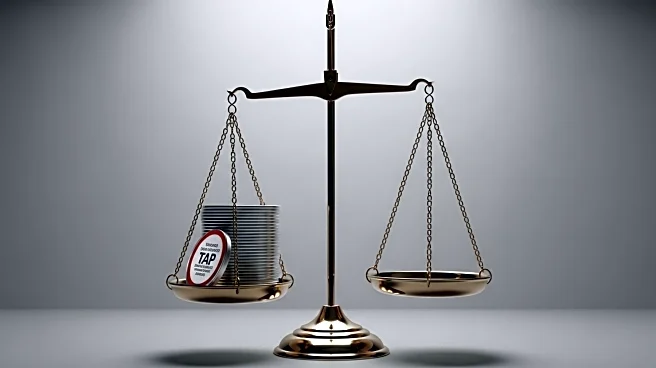What's Happening?
A federal appeals court has ruled that President Trump exceeded his authority by imposing broad tariffs, marking a significant legal setback. The U.S. Court of Appeals for the Federal Circuit determined that Trump overstepped his powers under an emergency law, affirming a previous decision by a federal trade court in New York. Despite this ruling, the tariffs remain in effect for the time being, as the court has allowed the administration to appeal to the Supreme Court. President Trump has expressed his intention to challenge the decision, stating that if the ruling stands, it could have dire consequences for the United States. The tariffs, part of Trump's protectionist trade policies, have caused disruptions in global markets and strained relationships with U.S. trading partners.
Why It's Important?
The court's decision underscores the ongoing legal and political challenges surrounding President Trump's trade policies. The tariffs have been a cornerstone of Trump's economic strategy, aimed at protecting American industries but criticized for their potential to increase consumer prices and slow economic growth. The ruling could have significant implications for U.S. trade policy and international relations, as it questions the extent of presidential power in economic matters. If the Supreme Court upholds the decision, it could limit the executive branch's ability to unilaterally impose tariffs, potentially leading to a shift in how trade policies are formulated and implemented.
What's Next?
The Trump administration is expected to appeal the ruling to the Supreme Court, which will be a critical next step in determining the future of the tariffs. The outcome of this appeal could have far-reaching effects on U.S. trade policy and the balance of power between the executive and legislative branches. Meanwhile, businesses and trading partners will be closely monitoring the situation, as the uncertainty surrounding the tariffs continues to impact economic planning and international trade relations.









